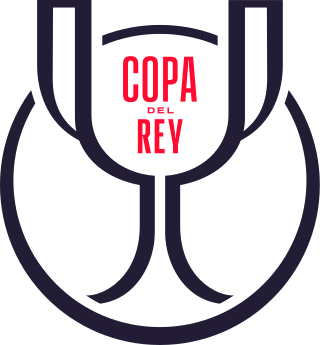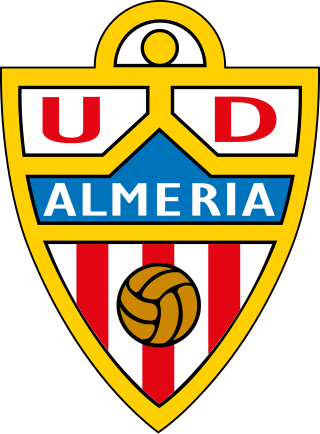See also
| Sovereign states |
|
|---|---|
| States with limited recognition | |
| Dependencies and other entities | |
| | This Spain-related article is a stub. You can help Wikipedia by expanding it. |
Fauna of Spain may refer to:

Central America is a subregion of North America. Its political boundaries are defined as bordering Mexico to the north, Colombia to the south, the Caribbean Sea to the east, and the Pacific Ocean to the west. Central America is usually defined as consisting of seven countries: Belize, Costa Rica, El Salvador, Guatemala, Honduras, Nicaragua, and Panama. Within Central America is the Mesoamerican biodiversity hotspot, which extends from northern Guatemala to central Panama. Due to the presence of several active geologic faults and the Central America Volcanic Arc, there is a high amount of seismic activity in the region, such as volcanic eruptions and earthquakes, which has resulted in death, injury, and property damage.

Catalonia is an autonomous community of Spain, designated as a nationality by its Statute of Autonomy. Most of its territory lies on the northeast of the Iberian Peninsula, to the south of the Pyrenees mountain range. Catalonia is administratively divided into four provinces or eight regions, which are in turn divided into 42 comarques. The capital and largest city, Barcelona, is the second-most populated municipality in Spain and the fifth-most populous urban area in the European Union.

Francisco Franco Bahamonde was a Spanish military general who led the Nationalist forces in overthrowing the Second Spanish Republic during the Spanish Civil War and thereafter ruled over Spain from 1939 to 1975 as a dictator, assuming the title Caudillo. This period in Spanish history, from the Nationalist victory to Franco's death, is commonly known as Francoist Spain or as the Francoist dictatorship.

Spain, or the Kingdom of Spain, is a country located in Southwestern Europe, with parts of its territory in the Atlantic Ocean, the Mediterranean Sea and Africa. It is the largest country in Southern Europe and the fourth-most populous European Union member state. Spanning across the majority of the Iberian Peninsula, its territory also includes the Canary Islands in the Atlantic Ocean, the Balearic Islands in the Mediterranean Sea, and the autonomous cities of Ceuta and Melilla in Africa. Peninsular Spain is bordered to the north by France, Andorra, and the Bay of Biscay; to the east and south by the Mediterranean Sea and Gibraltar; and to the west by Portugal and the Atlantic Ocean. Spain's capital and largest city is Madrid, and other major urban areas include Barcelona, Valencia, Zaragoza, Seville, Málaga, Murcia, Palma de Mallorca, Las Palmas de Gran Canaria, and Bilbao.

A tapa is an appetiser or snack in Spanish cuisine. Tapas can be combined to make a full meal, and can be cold or hot. In some bars and restaurants in Spain and across the globe, tapas have evolved into a very sophisticated cuisine. In some Central American countries, such snacks are known as bocas. In parts of Mexico, similar dishes are called botanas.
The Campeonato Nacional de Liga de Primera División, commonly known as the Primera División or LaLiga and officially as LaLiga EA Sports since 2023 for sponsorship reasons, is the top men's professional football division of the Spanish football league system. It is controlled by the LFP and is contested by 20 teams over a 38-matchday period.

The Campeonato de España–Copa de Su Majestad el Rey, commonly known as Copa del Rey, La Copa or the Spanish Cup, and formerly known as Copa del Presidente de la República (1932–36) and Copa del Generalísimo (1939–76), is an annual knockout football competition in Spanish football, organized by the Royal Spanish Football Federation.

A province in Spain is a territorial division defined as a collection of municipalities. The current provinces of Spain correspond by and large to the provinces created under the purview of the 1833 territorial re-organization of Spain, with a similar predecessor from 1822 and an earlier precedent in the 1810 Napoleonic division of Spain into 84 prefectures. There are many other groupings of municipalities that comprise the local government of Spain.

The Spain national football team has represented Spain in men's international football competitions since 1920. It is governed by the Royal Spanish Football Federation, the governing body for football in Spain.

Lionel Andrés "Leo" Messi is an Argentine professional footballer who plays as a forward for and captains both Major League Soccer club Inter Miami and the Argentina national team. Widely regarded as one of the greatest players of all time, Messi has won a record eight Ballon d'Or awards, a record six European Golden Shoes, and was named the world's best player for a record eight times by FIFA. Until 2021, he had spent his entire professional career with Barcelona, where he won a club-record 34 trophies, including ten La Liga titles, seven Copa del Rey titles, and the UEFA Champions League four times. With his country, he won the 2021 Copa América and the 2022 FIFA World Cup. A prolific goalscorer and creative playmaker, Messi holds the records for most goals (474), hat-tricks (36), and assists in La Liga (192). He has the most international goals by a South American male (106). Messi has scored over 800 senior career goals for club and country, and the most goals for a single club (672).
The Campeonato Nacional de Liga de Segunda División, commonly known as Segunda División, and officially known as LaLiga Hypermotion for sponsorship reasons, is the men's second professional association football division of the Spanish football league system. Administered by Liga Nacional de Fútbol Profesional, it is contested by 22 teams, with the top two teams plus the winner of a play-off promoted to La Liga and replaced by the three lowest-placed teams in that division.

Gibraltar is a British Overseas Territory and city located at the southern tip of the Iberian Peninsula, on the Bay of Gibraltar, near the exit of the Mediterranean Sea into the Atlantic Ocean. It has an area of 6.7 km2 (2.6 sq mi) and is bordered to the north by Spain. The landscape is dominated by the Rock of Gibraltar, at the foot of which is a densely populated town area, home to some 32,688 people, primarily Gibraltarians.
A list of the most notable films produced in the Cinema of Spain, ordered by decade and year of release on separate pages. For an alphabetical list of articles on Spanish films, see Category:Spanish films.

The Spanish Civil War was a military conflict fought from 1936 to 1939 between the Republicans and the Nationalists. Republicans were loyal to the left-leaning Popular Front government of the Second Spanish Republic, and consisted of various socialist, communist, separatist, anarchist, and republican parties, some of which had opposed the government in the pre-war period. The opposing Nationalists were an alliance of Falangists, monarchists, conservatives, and traditionalists led by a military junta among whom General Francisco Franco quickly achieved a preponderant role. Due to the international political climate at the time, the war had many facets and was variously viewed as class struggle, a religious struggle, a struggle between dictatorship and republican democracy, between revolution and counterrevolution, and between fascism and communism. According to Claude Bowers, U.S. ambassador to Spain during the war, it was the "dress rehearsal" for World War II. The Nationalists won the war, which ended in early 1939, and ruled Spain until Franco's death in November 1975.

Unión Deportiva Almería, S.A.D. is a Spanish professional football club based in Almería, in the autonomous community of Andalusia. Founded on 26 July 1989 and known as Almería Club de Fútbol until 2001, when it was renamed Unión Deportiva Almería. The club currently plays in the Spanish Primera División after winning the Segunda División title in 2022, and plays their home games at the 17,400-seat capacity Power Horse Stadium.
A peerage is a legal system historically comprising various hereditary titles in a number of countries, and composed of assorted noble ranks.